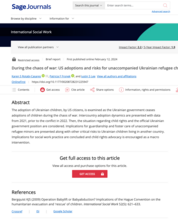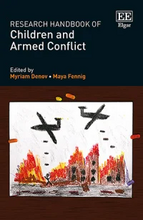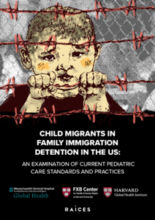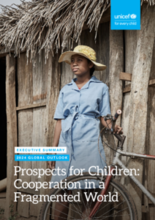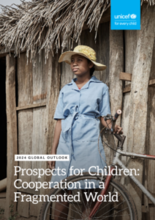Displaying 21 - 30 of 516
This report presents an analysis of focus group discussions (FGDs) conducted over the course of December 2023 and January 2024 with children affected by the conflict in Ukraine, including those displaced within Ukraine as well as those in Romania, Moldova, and Georgia.
This chapter highlights the need for social protection and welfare benefits to be portable with the ability for migrants families to access entitlements as they move between locations. This chapter focuses on how this is implemented in India's labour economy.
This article examines the adoption of Ukrainian children, by U.S. citizens as the Ukrainian government ceases adoptions of children during the chaos of war. Intercountry adoption dynamics are presented with data from 2021, prior to the conflict in 2022.
In this conversation moderated by Gillian Huebner, executive director of the Collaborative on Global Children’s Issues at Georgetown University, panelists outline Ukrainian efforts to protect its children and the measures international partners can take to support an effective response to the impact of Russia’s policies of aggression on Ukraine’s future.
This handbook explores children’s lived realities of armed conflict and its aftermath and features empirical, conceptual and policy analyses alongside first-hand accounts of the experiences of war-affected children and youth.
This webinar explored the role of the Catholic Church in responding to children who are migrating alone or who are at risk of or have been separated from their families&nbs
The study is the first analysis of the medical records of children as young as six months old and a median age of nine years old detained between June 2018 and October 2020 at Karnes County Family Residential Center in Texas. The report documents evidence of mental and physical harm relating to inadequate and inappropriate medical care experienced by children during prolonged detention.
The 2024 Global Outlook Prospects for Children: Cooperation in a Fragmented World examines how global fragmentation along geopolitical and economic lines will impact children in 2024 and beyond. It highlights eight key trends that will shape children’s lives and provides policy guidance to protect their rights and well-being amid this uncertainty.
Prospects for Children in 2024: Cooperation in a Fragmented World is the latest edition of the Global Outlook, a series of reports produced each year by UNICEF Innocenti – Global Office of Research and Foresight, which look to the key trends affecting children and young people over the following 12 months and beyond.
The ‘Supporting Integration’ toolkit documents and shares good practice guidance for practitioners working with child migrants. The toolkit was developed as part of a three year project which involved research into the integration of children moving from the Middle East to Europe, and aims to enhance integration support and services, ensuring that children and young people are provided with a care that fosters their development and well-being.



